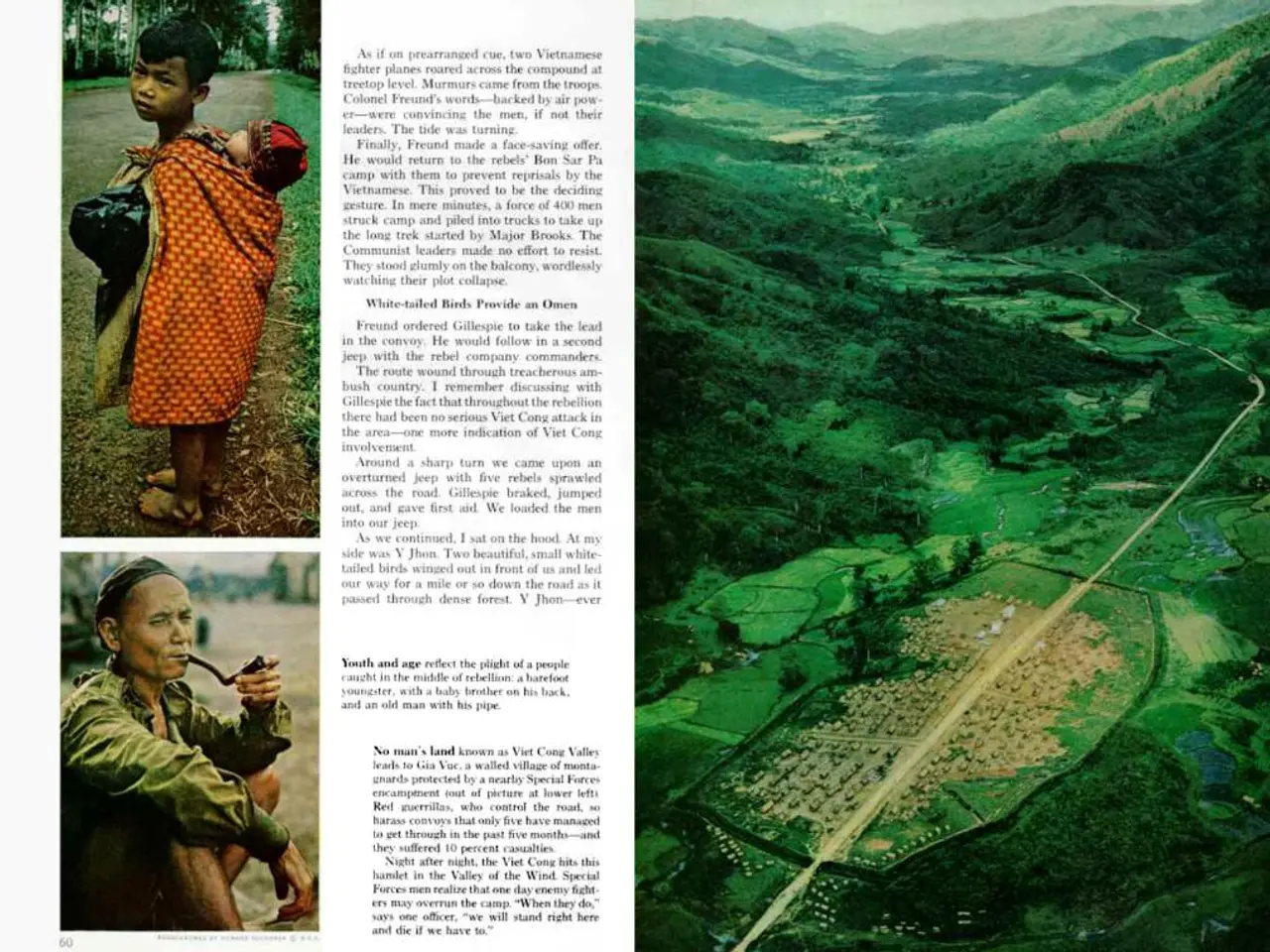Trump should not rely on Putin, as advised by Estonian Foreign Minister Margus Tsahkna.
Estonia's relationship with Russia, particularly under President Vladimir Putin, is characterised by a deep-rooted distrust and concern over Russian aggression, particularly regarding territorial integrity and regional security. The Baltic nation strongly upholds its sovereignty and territorial integrity in the face of Russian influence and military threats.
This wariness intensified significantly after 2005, following the addition of a controversial preamble during ratification that was viewed unfavourably by Russia. This period also saw Putin's 2007 criticism of the West at the Munich Security Conference, increased Russia-backed unrest in Estonia (such as the Bronze Night riots), and regional conflicts like the 2008 Russo-Georgian war. These events underscored the broader confrontation between Russia and the rules-based international order represented by NATO and the EU, both of which Estonia joined in 2004.
Regarding the Minsk agreements, which aimed to resolve the conflict in Eastern Ukraine, Estonia aligns with Western positions that underscore respect for Ukraine's territorial integrity and sovereignty, opposing Russian assertions and military actions that violate these principles. Estonia views Russian aggression in Ukraine as part of a broader challenge to European and Baltic security, influencing its policy of deterrence and alliance with NATO.
Estonian officials and Western observers interpret Russia's actions, including its military buildup near NATO borders and disinformation campaigns targeting Estonia, as direct threats. Russian propaganda accuses Estonia of provocation and "Russophobia," while NATO deployments and exercises, such as the HIMARS drills on Saaremaa Island near St. Petersburg, are seen by Estonia as necessary for defense and deterrence.
The Munich Agreement of 1938, although not directly related to Estonia, symbolises to many in Estonia the dangers of appeasement to aggressive powers like Nazi Germany. This historical reminder underscores the risks posed by territorial concessions under external pressure. Estonian attitudes toward Russia are informed by historical experiences of occupation and loss of independence during Soviet times, making the defense of territorial integrity paramount.
In summary, Estonia views Putin's Russia as a revisionist power threatening European security and the sovereignty of neighbouring states, including Estonia itself. Estonia strongly supports the principles enshrined in the Minsk agreements concerning Ukraine’s territorial integrity while recognising their limited success. Estonia interprets Russia's actions in the Baltic region as part of a wider challenge to the post-Cold War order and responds through NATO membership and regional defense cooperation. The Munich Agreement of 1938 symbolically reinforces Estonia's resolve against territorial concessions under pressure from aggressive neighbours.
This context reflects Estonia’s consistent policy of vigilance against Russian influence, prioritising alliance with NATO and the EU, and a firm stance on territorial sovereignty and European security. The need for unity with Ukraine might be seen as a response to potential aggression, while Europeans collectively disagree with the conquest of territories by military force. The Estonian Foreign Minister is advocating for the verification of Putin's real goals, as Putin did not offer a ceasefire during the negotiations and is demanding more, according to the Estonian Foreign Minister. The implication from the Munich Agreement is that the aggressor tends to seize more and more.
- Given the deep-rooted distrust and regional security concerns between Estonia and Russia, Estonia's foreign policy remains heavily influenced by war-and-conflicts, politics, and general-news related to Russian aggression, particularly in light of the broader confrontation between Russia and the rules-based international order.
- As Estonia continues to view Putin's Russia as a revisionist power threatening European security and the sovereignty of neighbouring states, Estonian politicians are actively engaging in diplomacy, such as advocating for the verification of Putin's real goals, to maintain regional peace and uphold the principles of territorial integrity and sovereignty.






